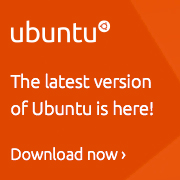The nontraditional workforce and the future of Work
From my toblog-backlog, a while ago Business Week magazine had a cover story on the “The Future of Work”, which had some material for the discussion on knowledge work and collaboration in the enterprise, namely when social software comes into the play. Remember, I am coaching and consulting in this space, so I found these articles interesting.
The cornerstone of BW is that through the Internet, ie. all these rich channels of communication and interaction, the notion of what is meant with “being at work” is changed, especially into more collaborative modes:
[…] the modern workplace no longer resembles the factory assembly line but rather the design studio, where the core values are collaboration and innovation, not mindless repetition.
And yes, the nontraditional workforce is on the rise, if only because adaptivity is built into their DNA, and they need their informal networks to get work done:
Complicating matters is the fact that the very idea of a company is shifting away from a single outfit with full-time employees and a recognizable hierarchy. It is something much more fluid, with a classic corporation at the center of an ever-shifting network of suppliers and outsourcers, some of whom only join the team for the duration of a single project.
and
[…] The hard part for multinationals is getting people to work well together, especially given that day-and-night collaboration across the globe is growing […] Nokia is careful to select people who have a collaborative mindset […] Accenture, which spent $700 million on education last year, says its 38,000 consultants and most of its service workers take course on collaborating with offshore colleagues.
(I am posting this from BarCamp Berlin where the nontraditional workforce is having a week(end) of hybrid work/play …)





[…] also reminded me of another post I did on The nontraditional workforce and the future of Work, on collaboration processes and means of communication and interaction, specifically for the […]
[…] (vielleicht sollte es besser heißen den modernen Wissensarbeiter? Alles ist besser als nontraditional workforce …) ist eine zentrale Facette von SmarterWork, und eine Herausforderung zugleich. Die Runde […]